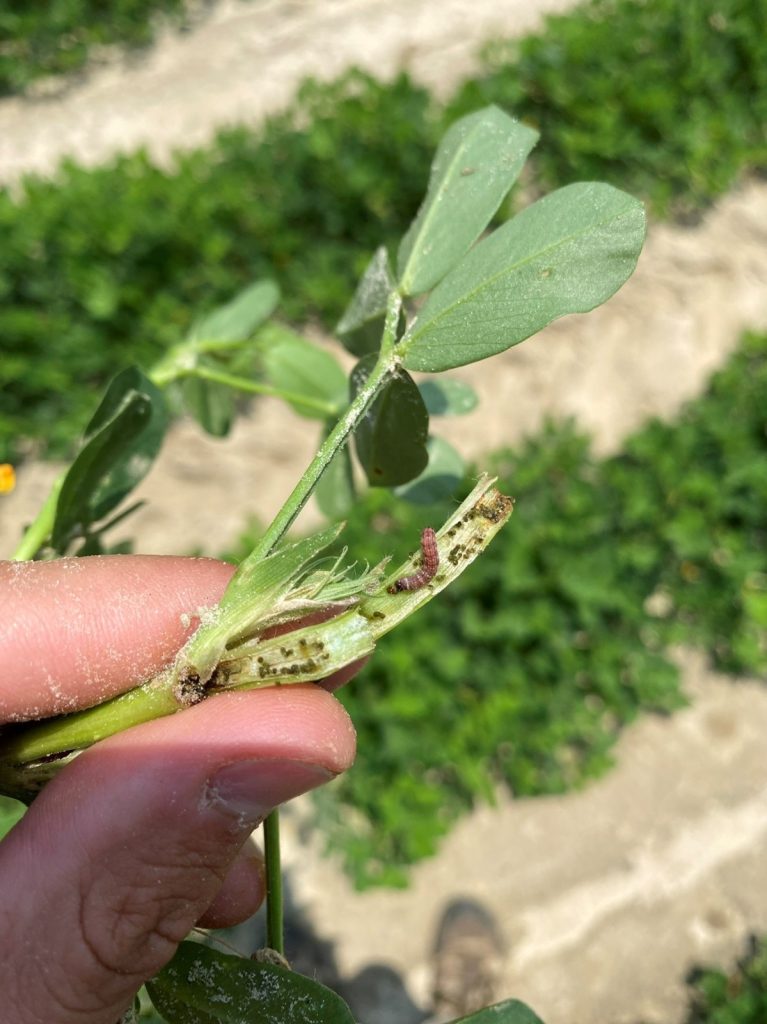The 2023 peanut growing season did not start out hot and dry, but nobody bothered to tell the lesser cornstalk borers (LCB). This pest is generally only a serious problem when temperatures are in the 90s and rainfall is scarce; nevertheless, LCB populations were reaching threshold levels in peanut fields all across Georgia by the first week of June. Then it started to rain. Depending on where you were, it seemed like the cloudy, rainy weather might never end, but we all knew it would. The questions was, what would two weeks of rainy weather do to the LCB population?
There are a lot of folks with the mistaken idea that rain kills LCB…it does not. Rain does make it harder to find the insect in the field because it washes away silk tubes and reduces the chances that infested plants will show wilt symptoms. It is also true that cooler, wetter conditions are not favorable for LCB survival and development. That means it will take longer for eggs to hatch and for larvae to become adults, and this generally gives beneficial insects more time to do their work. But while rain is a good thing, it does not eliminate LCB, and with the return of sun and warm temperatures this week, so too have returned reports of LCB in peanut. The situation is different than it was three weeks ago. A lot more of our fields are lapping or getting close to lapping the row middles. Once the row middles close, the risk of LCB infestation decreases, especially in irrigated fields, but the risk is not zero. The only way to know if a field has an active LCB infestation is to scout…it does not matter what anyone says, no one knows if a given peanut field needs to be treated for lessers if the field has not been properly scouted.
We will be setting the majority of this year’s peanut crop over the next few weeks. It would be a shame to lose yield to LCB, a pest that we can manage effectively, because we assumed that it was gone with the rain. The next 7 to 14 days would be an excellent time to get out in the field and check for signs of infestation. If fields are at threshold, a timely application of a recommended insecticide will preserve yield and quality.

A picture of an LCB larva in a peanut stem sent from Cale Cloud in Grady County, GA on 30 June 2023.
If you have questions about lesser cornstalk borer or any other insect management issue in peanut, please contact your local UGA County Extension Agent.